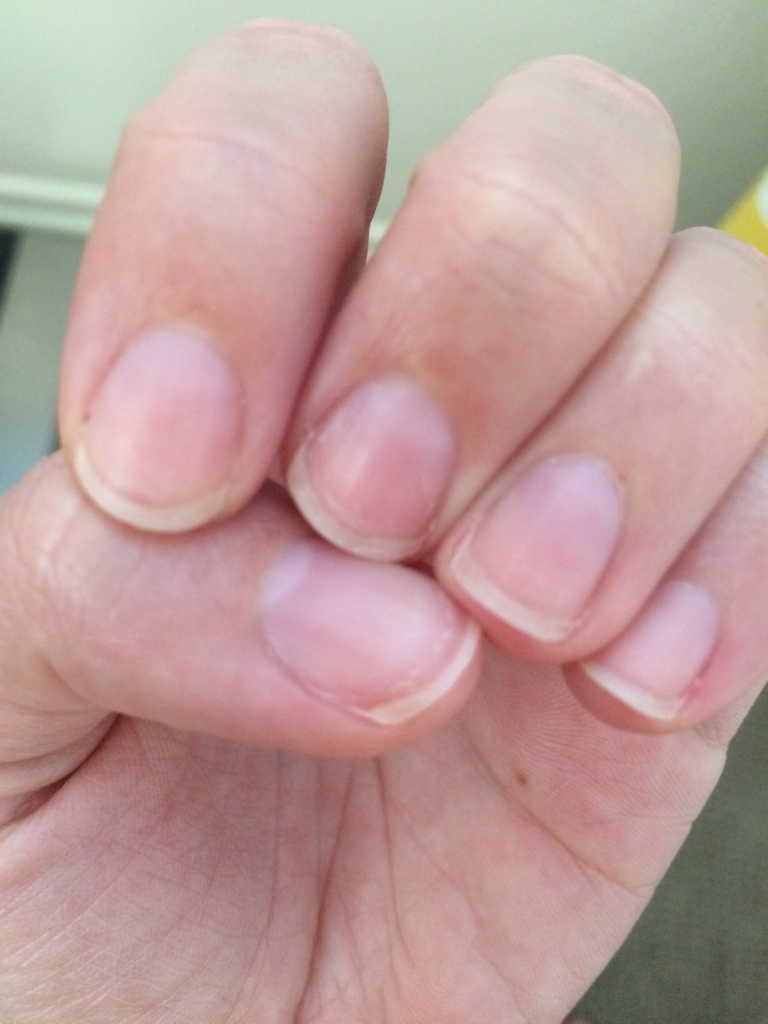
Introduction
Healthy nails are not just a beauty statement—they reflect overall wellness. Brittle, weak, or discolored nails can indicate nutritional deficiencies, lifestyle habits, or underlying health issues. Maintaining strong and attractive nails requires a combination of proper care, balanced nutrition, and sometimes supplementation.
This article explores strategies to improve nail health naturally, highlighting vitamins, minerals, and lifestyle tips to keep nails strong, smooth, and resistant to damage.
Understanding Nail Structure
Before improving nail health, it’s important to understand their structure:
- Nail plate: The visible part of the nail, made of keratin.
- Nail bed: Skin beneath the nail that provides nutrients and support.
- Cuticle: Protects the new nail growth from infections.
- Matrix: Area under the skin at the base of the nail where growth begins.
Nail problems often arise when any of these areas are compromised due to diet, stress, or environmental damage.

Common Nail Problems
- Brittle nails: Break easily due to dehydration or low protein intake.
- White spots: Often caused by zinc deficiency or minor injuries.
- Yellow nails: Can indicate fungal infections or poor hygiene.
- Slow growth: Nutrient deficiencies or hormonal changes can slow growth.
- Peeling or splitting: Often linked to excessive water exposure or harsh chemicals.
Recognizing these issues early helps in addressing them effectively.
Nutrients Essential for Nail Health
Proper nutrition is the foundation of strong nails. Key nutrients include:
- Biotin: Supports keratin production, essential for nail strength.
- Vitamin E: Promotes healthy nail growth and prevents damage.
- Vitamin C: Supports collagen production for firm nails.
- Zinc: Essential for nail repair and reducing white spots.
- Iron: Prevents brittle and spoon-shaped nails.
- Protein: Nails are primarily made of keratin, a protein.
Including these nutrients in your diet is crucial for long-term nail health.
Best Foods for Strong Nails
- Eggs: Rich in protein and biotin.
- Leafy greens: Provide vitamins A, C, and K.
- Nuts and seeds: Contain zinc, vitamin E, and healthy fats.
- Fish: Omega-3 fatty acids improve nail flexibility.
- Whole grains: Supply iron and B vitamins for nail growth.
- Fruits: Citrus fruits boost collagen production for nail strength.
A balanced diet ensures nails receive all the nutrients they need for resilience and growth.
Nail Care Tips
- Keep nails trimmed: Regular trimming prevents breakage.
- Moisturize: Hydrate nails and cuticles to prevent brittleness.
- Avoid harsh chemicals: Limit exposure to nail polish removers with acetone.
- Use gloves: Protect hands from detergents, chemicals, and excessive water.
- Avoid biting nails: Biting damages the nail bed and slows growth.
- Gentle filing: File nails in one direction to avoid splitting.
- Regular nail hygiene: Clean nails and cuticles to prevent infections.
These daily practices maintain nail integrity and appearance.
Supplements for Nail Health
For individuals with persistent nail problems, certain supplements can help:
- Biotin supplements: Strengthen weak and brittle nails.
- Collagen peptides: Support keratin production and nail growth.
- Multivitamins: Provide essential vitamins and minerals like zinc, iron, and vitamin E.
- Omega-3 supplements: Improve nail flexibility and prevent cracking.
Always consult a healthcare provider before starting new supplements.
Natural Remedies for Nail Problems
- Coconut oil massage: Moisturizes nails and cuticles.
- Olive oil soak: Strengthens brittle nails.
- Tea tree oil: Helps with fungal infections.
- Lemon juice: Brightens nails and removes stains.
- Aloe vera gel: Soothes nail damage and supports healthy growth.
Consistent application of these remedies improves nail appearance and strength.
Lifestyle Practices for Healthy Nails
- Stay hydrated: Proper hydration prevents brittle nails.
- Limit artificial nail treatments: Frequent acrylics or gels can weaken nails.
- Reduce stress: Stress hormones can negatively affect nail growth.
- Exercise: Improves blood circulation, nourishing nails.
- Sleep well: Adequate rest promotes cell repair, including nails.
Combining these habits with nutrition and care routines maximizes nail health.
When to See a Doctor
Consult a healthcare provider if you notice:
- Severe nail discoloration
- Persistent infections
- Pain or swelling around the nail bed
- Rapid changes in nail thickness or shape
These may indicate underlying health issues requiring medical attention.
Frequently Asked Questions (FAQ)
Q1: How long does it take to see improvements in nail health?
Visible improvements usually appear within 6–8 weeks with proper care and nutrition.
Q2: Can brittle nails be reversed naturally?
Yes, with diet, hydration, and protective nail care routines.
Q3: Are supplements necessary for everyone?
Not always. A nutrient-rich diet may suffice, but supplements help if deficiencies exist.
Q4: How often should I moisturize nails?
Daily application, especially before bed, is recommended.
Q5: Can nail polish damage nails permanently?
Frequent use without breaks can weaken nails over time.
Conclusion
Nail health reflects overall wellness and can be improved naturally through a combination of diet, supplements, and proper nail care. Incorporating essential nutrients, protecting nails from damage, and maintaining consistent hygiene practices ensure strong, shiny, and healthy nails.
By following the tips outlined in this article, anyone can support their nail health, prevent common problems, and enjoy nails that look and feel great.

